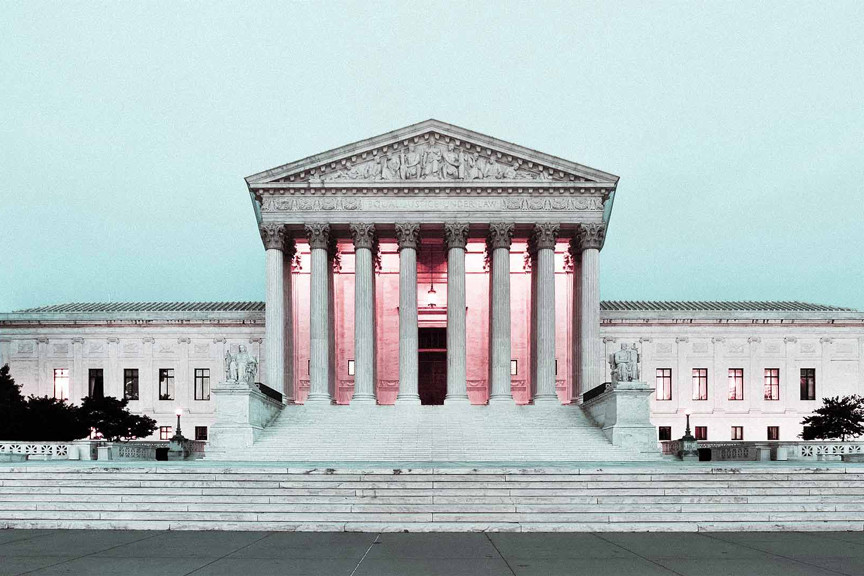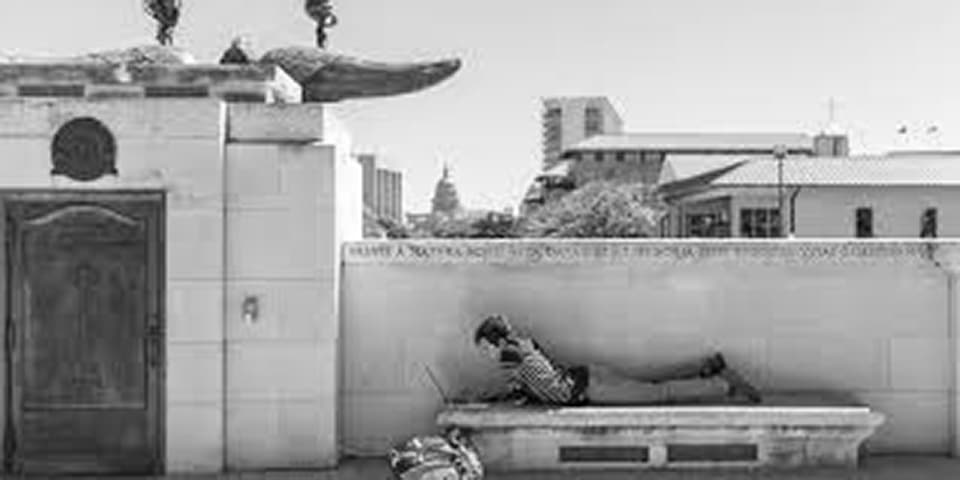I was an MDMA manufacturer in the ’80s. Then fled the country as a fugitive for 20 years. | Part 2

Psymposia is a 501(c)(3) nonprofit research and media organization that offers critical perspectives on drugs, politics, and culture. We rely on contributions from our readers and listeners. Your support is vital to sustaining Psymposia.
Support Psymposia’s independent journalism on Patreon and help us drive the Mystery Machine! We’re a bunch of meddling kids who are unmasking the latest shenanigans on the psychedelics beat.
Ibumped into my old friend David of Texas Monthly at the coffeehouse. I hadn’t seen him since I’d verified a story that they had published about MDMA a year before.
Over steaming, foaming cups, he told me about his latest venture, Yoga House, which he had just opened up by the UT Law School. It was a two-story house that had been converted into a school and studio for yoga and martial arts. It was run by a couple, Ron and Betty Eckelbecker.
When David asked me about my life, I explained that the Supreme Court had just issued its ruling. I told him that I knew that I should do something, but I was a little paralyzed. I had avoided dealing with it for so long. Now that a decision had come down, I wasn’t really prepared.
David reacted very strongly. He said, “I think my friend Ron can help you.” He scribbled a phone number on a piece of paper. “This number will only be answered between 6 and 7 p.m. on Tuesdays and Thursdays. Call and let it ring three times. Hang up and call again. Ask for Ron.” He seemed shaken. His fear was contagious, and it helped motivate me. I promised I’d call.
That Tuesday, I called Ron. I let it ring three times and hung up. When I called back, the phone was picked up immediately. “Yes.”
I asked for Ron. The voice asked who I was. When I gave my name, he told me to go to the entrance of the University of Texas Law School, turn right on the sidewalk, and wait in the phone booth at the first intersection.
I rode over to the law school and entered the phone booth. In about three minutes, the telephone rang. When I picked it up, the voice said, “You’re not being followed. Cross the street and come down to Yoga House. Bring your bike inside the front door.” He hung up.
I did it. I found myself in a peaceful oriental setting—mats around the floor, incense burning, flowers, candles. A small table with books and pamphlets stood in front of me. I parked the bike, and a voice said, “Come this way.”
A white-robed man led me down to the end of the hall into what seemed like a meditation room. We arranged ourselves on cushions in front of a flower-draped altar.
This was Ron. He seemed peaceful and extremely composed. His eyes and voice were clear and bright. He was happy to be alive, like he had reached some kind of enlightenment. He told me that David had told him about me and asked what had been going on in my life. Was I being watched?
As I told him all the action, he became more agitated, and finally burst out, “You have to disappear now. Don’t wait a minute more. Meet me tomorrow afternoon at 3 p.m. in the Japanese teahouse that the art department set up by the creek.”
The next day, I met Ron for a second time. He’d told me to be sure I wasn’t followed. I came via the LBJ library complex where I could have seen anyone. I rode all over the complex and didn’t see anything suspicious. Ron was anxious. “Okay,” he said.
He filled me in. Nine years ago, he was in North Carolina when the phone rang. It was his partners who told him that a new shipment of hashish had arrived at the farm that they used in the countryside of Kentucky. He was to go check on the shipment—100 kilos—and make sure it was passed to the right people. He drove 14 hours and arrived the next morning.
It was a setup. As he entered the barn, they surrounded him. He got 13 years for drug trafficking. He’d always studied martial arts, but now he had lots of time to practice. He got good. He’d recently been released on parole. David heard about him and worked out a deal with the parole board to get Ron released. A few months after release, Ron married a woman who taught yoga. The two of them moved into Yoga House, which David had just purchased. They were business partners.
Ron then explained that one of his old friends from the penitentiary in Merion, Illinois lived in a foreign country. He and his friend had set up a pipeline to get people out of the U.S.—a kind of underground railway.
“I’m checking now that they’re ready to take you.” He said that I would have to follow his instructions to the letter. I agreed.
He told me to meet him the next day at 11 a.m. at a certain bench on the main mall of UT. Make sure I wasn’t followed. I knew that I was being watched, so I was sincere when I said I’d try. I’d seen the footprints in my rug. I went directly home. I opened my suitcase and started to pack. It took me all night. I had a house full of treasures.

I put in some pictures, cassettes, a blank diary, a few pieces of clothes, and that was it. At 3 a.m., I crept out the back door and checked the neighborhood. I didn’t see any cars or vans on the streets, nobody strolling around slowly. It was quiet. I went back inside, put the backpack on, and went for the bike. I took a long circuitous route, eventually landing back at the business school.
I scooted inside and got everything up the elevator to my office on the seventh floor. I finished up what I could. At five minutes before 11 a.m., I went one flight down the stairway. I got on the elevator and went up five floors. Then I walked down one flight and then across the glass walkway that connected the two buildings. Down the stairway two floors, then across the building to the elevators to the ground floor and the rear entrance. I went all the way around the block then cut back to the main mall. Ron was already there.
After looking around carefully, he passed me a small piece of paper. He said, “Memorize what’s on that paper, and then eat it.”
I laughed, but I did it. He told me that the guy was expecting me. All I had to do was get that far. He told me that I had to be prepared to not look back.
I stood up and walked away. Not much left to do now. I picked up the backpack and bicycle at the office and carried them both across the glass walkway of the business school, down into the basement, then through a tunnel that connected to the library. I must have looked strange carrying the bike, but at that point it didn’t matter much.
I went up into the library, across some stacks, then down the stairway and out the side door. Jumped on the bike and rode. I stayed on bike paths and rode all over the city, stopping periodically to be sure that no one was following me.
I took my time, reminiscing to myself about life in Austin. Finally, around 5 p.m I pulled up in front of a laundromat northeast of campus. I locked the bike to a pole and went inside. No one else was there. I watched carefully that nobody was passing or watching, then I slipped quickly out the backdoor. I squeezed through a hedge into the back alley.
Just opposite was the apartment where Lorraine Rost, the secretary at the office, lived. I went upstairs and knocked. That morning I’d told her that I might stop by.
She was flustered standing in the doorway. There had always been an attraction between us, but it seemed more immediate for her. She asked me in.
We sat on the couch, and I told her the truth. I was disappearing, and I needed shelter for the night. I needed the company of a woman. Could I stay with her until the morning?
She told me that I was asking too much, just too much, but then of course you can stay. We spent a warm, sexy night with each other. Thank you, Lorraine. I’ve always treasured our one night together.
In the morning, I walked three blocks over and deposited the key to the bike lock with my old friend Alex. He was having breakfast. I asked him to keep an eye on the bike.
He wished me love and luck, gave me a hug, and down the stairs to the street and around the corner I went.
I took a cab to the Austin airport for an 11 AM flight to Dallas Love Field. All the way to Dallas, I sat with my eyes closed, picturing that piece of paper that Ron had passed me, making sure that I had it memorized, and trying to peer into the future. The paper said:
John Zabaneh
Dangriga Town
Belize
You can read Rob’s full story in his book Heaven’s Tale: From Scientist to Kingpin, from Fugitive to Father
Hey! Before you go… Psymposia is a 501(c)(3) non-profit media organization that offers critical perspectives on drugs, politics, and culture. We strive to ask challenging questions, and we’re committed to independent reporting, critical analysis, and holding those who wield power accountable.
Our perspectives are informed by critical analysis of the systemic crises of capitalism that have directly contributed to the unmitigated growth of addiction, depression, suicide, and the unraveling of our social relations. The same economic elite and powerful corporate interests who have profited from causing these problems are now proposing “solutions”—solutions which both line their pockets and mask the necessity of structural change.
In order for us to keep unpacking these issues and informing our audience, we need your continuing support. You can sustain Psymposia by becoming a supporter for as little as $2 a month.
Rob Widdowson
Rob Widdowson has worn many hats—fugitive, scientist, jailbird, doctor, kingpin, and father. The adventures outlined here along with many more are detailed in his memoir, Heaven’s Tale.





